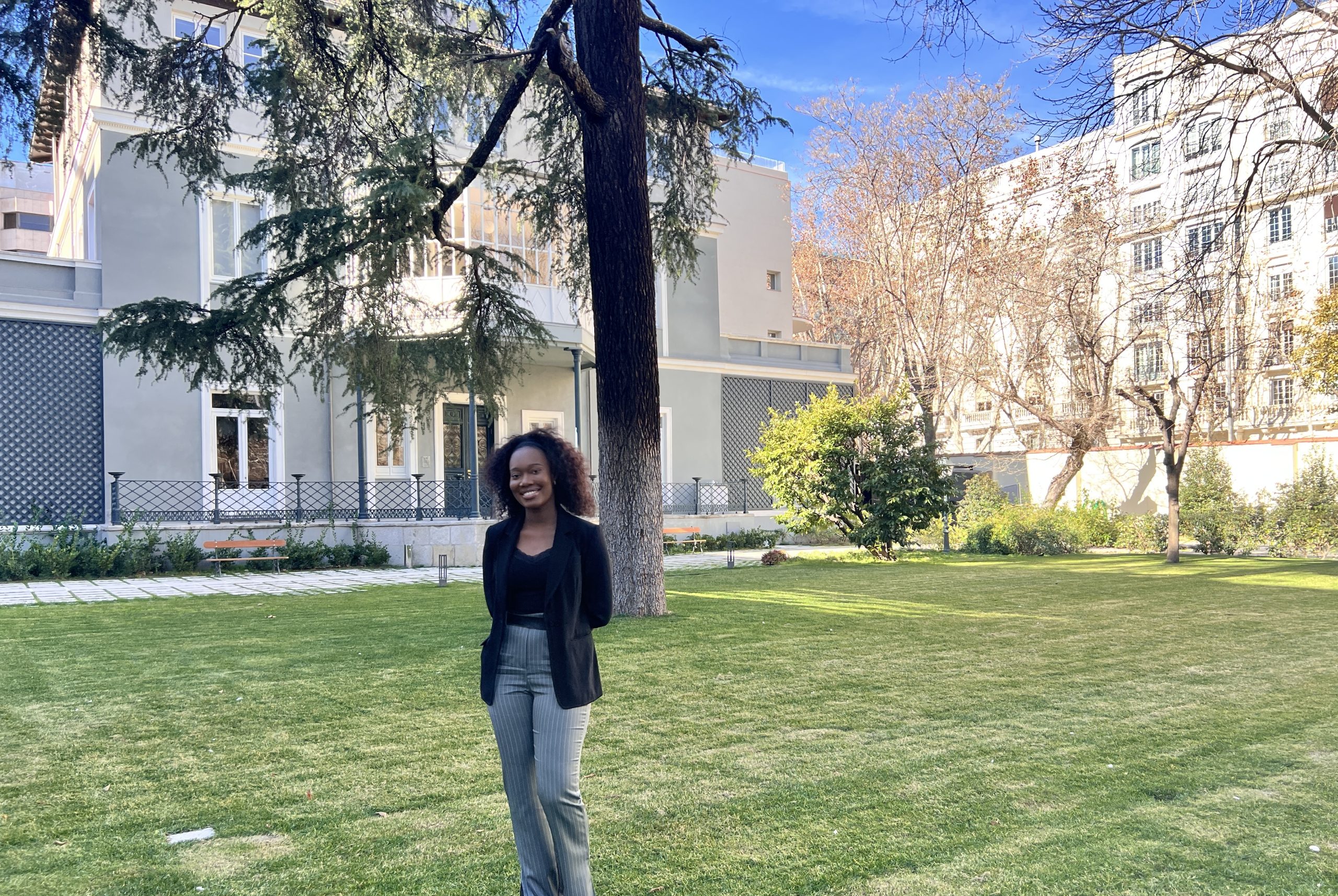 To mark Women at Imperial Week, we’re spotlighting Fama Manneh, a 2nd-year PhD student, from the Department of Bioengineering and the National Heart and Lung Institute (NHLI) and her recent invite by the British Embassy in Madrid to speak on the topic of breaking stereotypes as a woman. As the President of Women in STEM she is a driving force inspiring women within and outside the University community. Read more about her experience in Madrid below.
To mark Women at Imperial Week, we’re spotlighting Fama Manneh, a 2nd-year PhD student, from the Department of Bioengineering and the National Heart and Lung Institute (NHLI) and her recent invite by the British Embassy in Madrid to speak on the topic of breaking stereotypes as a woman. As the President of Women in STEM she is a driving force inspiring women within and outside the University community. Read more about her experience in Madrid below.
Recently, I had the honour of being invited by the British Embassy in Madrid to speak at an event organised by Beatriz Herranz. The event, “Women in Science: Breaking stereotypes and creating role models” was held at Fundación Ortega-Maranon. This historic venue, dating back to the early 20th century, was a Girls’ Residence (Residencia de Señoritas) that provided both housing and educational opportunities for young women pursuing higher education. It offered a supportive environment for female students to pursue arts, sciences, and humanities, fostering intellectual growth and independence.
The selection of this venue for the Women in Science event holds symbolic significance, as it reflects the continuation of the Girl’s Residence mission to empower women through education and knowledge. The choice pays homage to the pioneering women who once resided there, aiming to inspire current generations of female scientists, engineers, and technologists.
At the event, Teresa Guerrero of El Mundo Science expertly moderated a thought-provoking roundtable discussion. I shared the panel with distinguished figures, including Silvia Rueda Pascual, a Cabinet Advisor at the Ministry of Science and Innovation and Director of the Women and Science Unit; María A. Blasco, the Director of the Spanish National Cancer Research Centre (CNIO); and Cynthia Cabanas, a PhD student and representative of the Spanish Researchers in the United Kingdom (SRUK/CERU).
Our dialogue delved into the multifaceted challenges surrounding the underrepresentation of women in science. Various factors were identified as contributing to this complex issue. The conversation highlighted the significance of lacking female role models in STEM, the existence of unwelcoming environments perpetuated by gender bias and stereotypes, the prevalence of imposter syndrome undermining women’s confidence, and the impact of policies surrounding maternity leave on career trajectories. Societal norms, expectations, and biases in hiring and promotion processes were acknowledged as additional barriers. Educational disparities, work-life balance challenges, and the overall lack of robust support systems further compound the issue.

The discussion smoothly transitioned to discussing effective solutions and best practices for promoting inclusivity and equality. These strategies included amplifying women’s voices, promoting diversity and inclusion initiatives within scientific institutions, establishing mentorship programs to offer guidance and support, and increasing the visibility of successful women in STEM. Flexibility in work policies, bias training, and educational outreach are crucial for addressing barriers and stereotypes. Additionally, encouraging equal representation in decision-making roles, transparent hiring and promotion processes, and implementing family-friendly policies were also recognized as pivotal measures.
We also discussed the historical erasure of women’s contributions to science and examined societal gender roles within the context of work-life balance. This comprehensive exploration added depth to our conversation. A resounding theme emerged: Women’s underrepresentation is not merely a localized problem but a societal issue that requires sustained attention and action. It is not only a ‘woman’s problem’. Drawing on statistics, such as the alarming fact that women constitute only 17% of the STEM workforce in the EU, as highlighted by Clara Piloto, the Director of Global Programs at MIT, emphasized the urgent need for continuous implementation and revision of best practices. Herein lies the crux of the matter — achieving equity and equality necessitates an unwavering commitment to addressing these challenges on multiple fronts.
In conclusion, this event provided an invaluable platform to share insights, exchange experiences, and collectively advocate for change. As we navigate the intricate landscape of women’s representation in STEM, the call for sustained effort and proactive measures mirrors a future where the narrative is one of inclusivity, diversity, and equal opportunity.